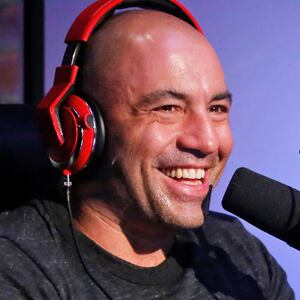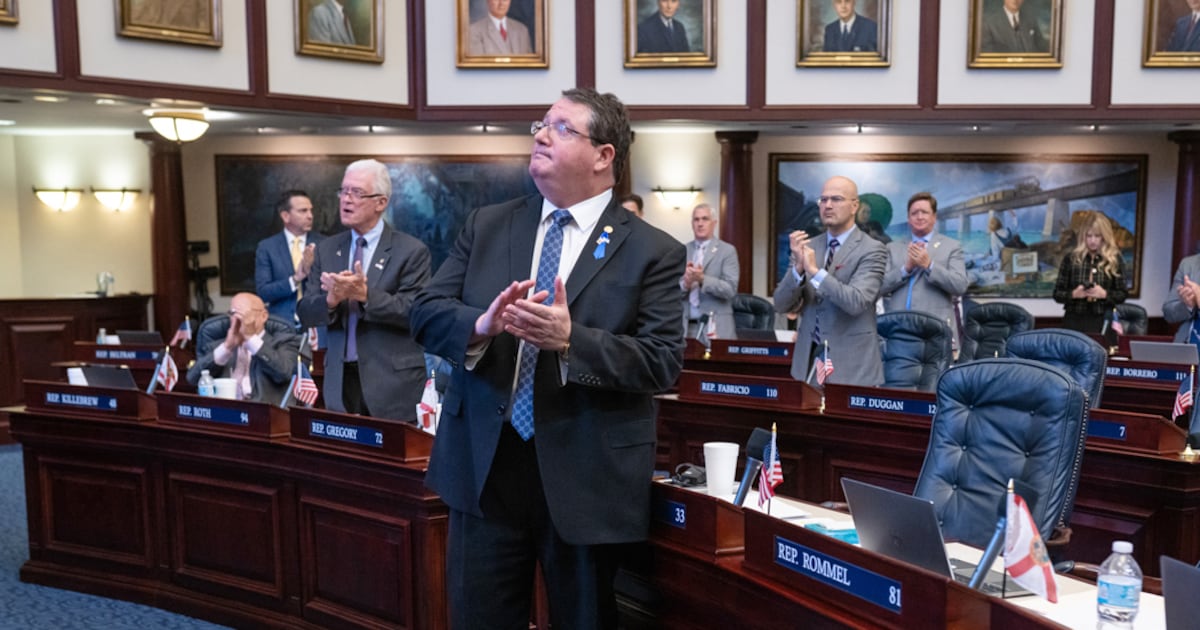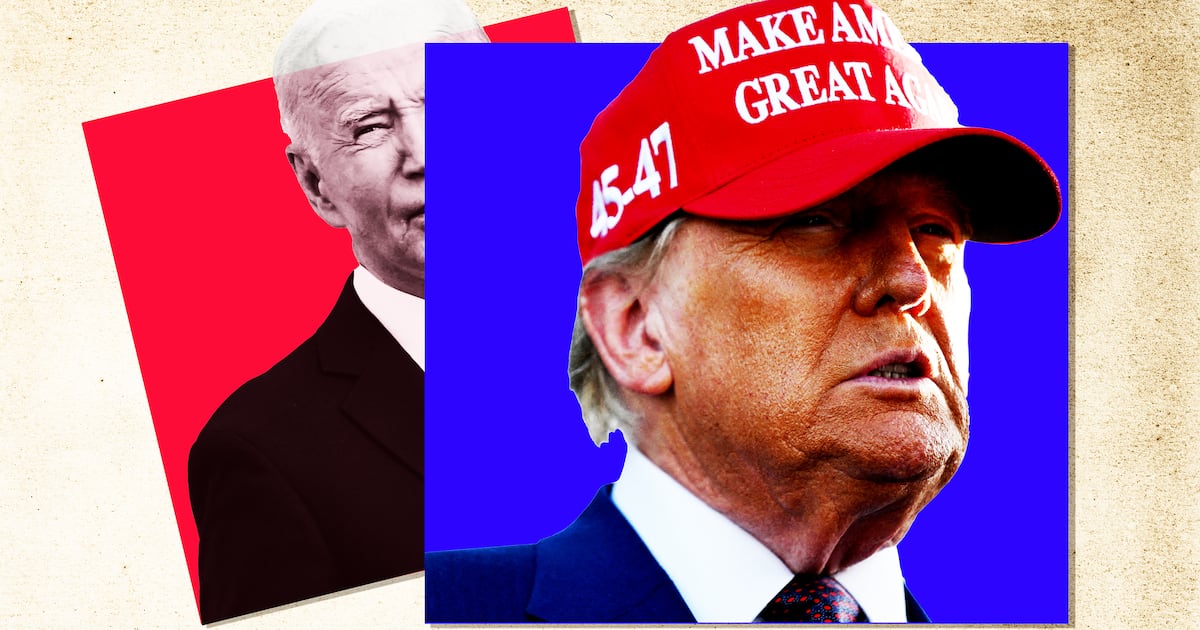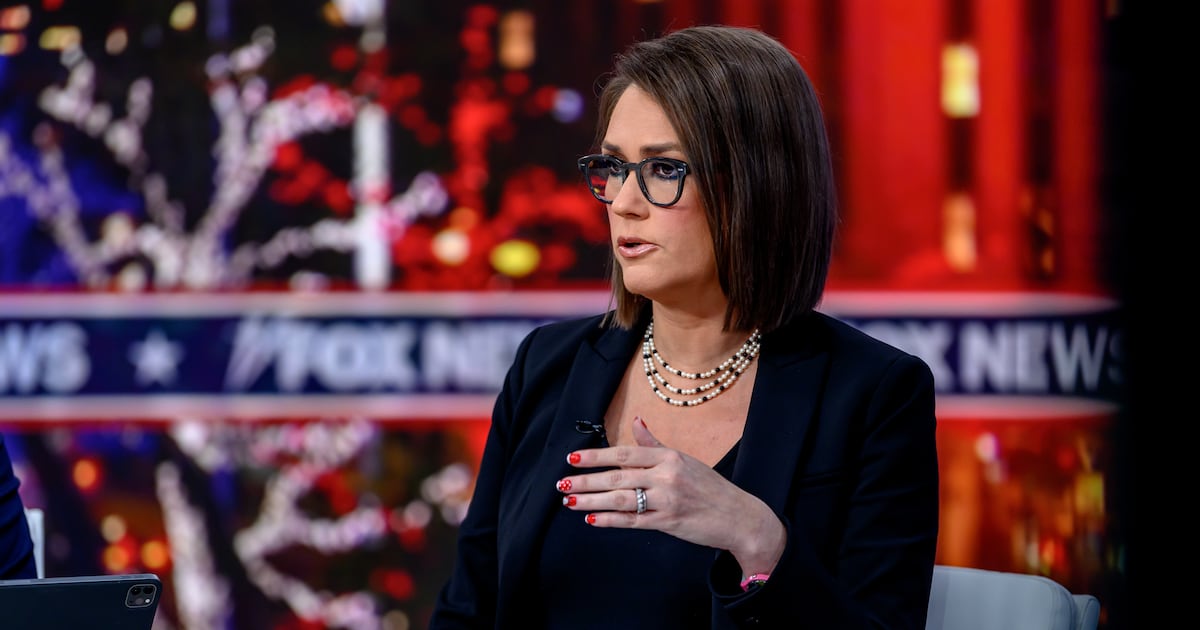Podbro-in-chief Joe Rogan marveled Tuesday at Democrats purportedly “scrambling” to create their own equivalent of his show to counter a perceived right-wing man-o-sphere, saying he was once “on their side.”
“I’m sure they’re scrambling to try to create their own version of this show,” he said on his podcast, The Joe Rogan Experience. “This is one thing that keeps coming up: ‘We need our own Joe Rogan.’ But they had me. I was on their side.”
The libertarian-leaning Rogan endorsed President-elect Donald Trump the day before this month’s election, after hosting Trump, his running mate JD Vance, and billionaire MAGA backer Elon Musk for separate sit-down interviews on his wildly popular show in the days leading up to the vote.
ADVERTISEMENT
Rogan has supported progressives in the past. During the 2020 election cycle, he endorsed Vermont Sen. Bernie Sanders’ bid for the Democratic nomination.
At the time, Sanders took flack from members of the party establishment for appearing on Rogan’s show and touting the podcaster’s endorsement, but he also got Rogan to voice support for progressive policies like universal health care.
“They had you and they drove you away,” said Rogan’s guest Tuesday, Silicon Valley venture capitalist Marc Andreessen.
Rogan also invited Vice President and then-Democratic nominee Kamala Harris to appear on his show, but the two failed to agree on a time or conditions for an interview. Accounts of how the potential appearance fell through have varied, even from inside the Harris campaign.
Harris campaign senior adviser Stephanie Cutter said on the Pod Save America podcast Tuesday that it was a scheduling issue.
She noted that Harris ran a truncated campaign after President Joe Biden dropped out of the race, leaving her with unusually limited free time. Rogan’s show tapes in Austin, Texas, which would have meant potentially sacrificing time in a swing state.
But Jennifer Palmieri, a senior adviser to Harris’ husband, Doug Emhoff, told the Financial Times earlier this month that backlash from progressive staff who didn’t want Harris to appear on Rogan’s show is what ultimately nixed any chance of her appearing.
Rogan has frequently spread conspiracy theories, COVID-19 misinformation, and pseudoscience, leading to harsh rebukes from progressive critics.
Veteran Democratic Party strategist James Carville accused staffers unwilling to get over that of throwing “a hissy fit” in a YouTube video Tuesday.
Media commentators have indeed fretted since Election Day about the role Trump’s appearances on podcasts and online streams with large, young male audiences played in his victory.
On Rogan’s show, Andreessen compared the 2024 election to the 1960 election, which is mythologized as the first national vote where television played a major role.
Republican candidate Richard Nixon refused to wear makeup for a televised debate, which made his stubble appear prominently on black-and-white screens and his sweat under the studio lights especially visible. The appearance was said to be highly damaging to his campaign, and he went on to lose to John F. Kennedy.
“I think there is a fully, internet-native way to run these campaigns,” Andreessen added, noting the 2024 race, or possibly another election in the near future, could be remembered as the first “internet election.”
Whether Democrats or progressives can replicate or find a way to rival the the dynamics of online conservative media—with or without a Rogan—is unclear.
Independent journalist Taylor Lorenz, a former Daily Beast reporter who has covered the online world for nearly a decade, wrote earlier this month that, unlike in the liberal ecosystem, conservative media in America is well-funded and well-organized, with billionaire backers and moneyed political committees willing to invest in right-wing media and content creators.
“Without a network of culturally relevant influential content creators boosting and translating their messaging, the Democratic Party is rapidly losing credibility among younger, predominantly male audiences who have become ardent supporters of influencers that promote a distinctly conservative worldview,” she added.
Brendan James, a co-host of the American history podcast Blowback and a former producer of the left-wing Chapo Trap House podcast, told Fast Company that right-wing success in streaming and podcasting is a continuation of dominance in radio and TV news going back through Rush Limbaugh and Sean Hannity, which has now made figures like Rogan and Ben Shapiro as influential in the conservative movement as their talk radio forebears.
“The liberals—the center-left, if you like—have never matched that in radio,” James added. “Their natural turf is Hollywood and, generally speaking, the music and culture industries. And that’s no small thing (the right remains jealous of it), but it’s a very different kind of influence than talk radio’s direct political messaging.”










